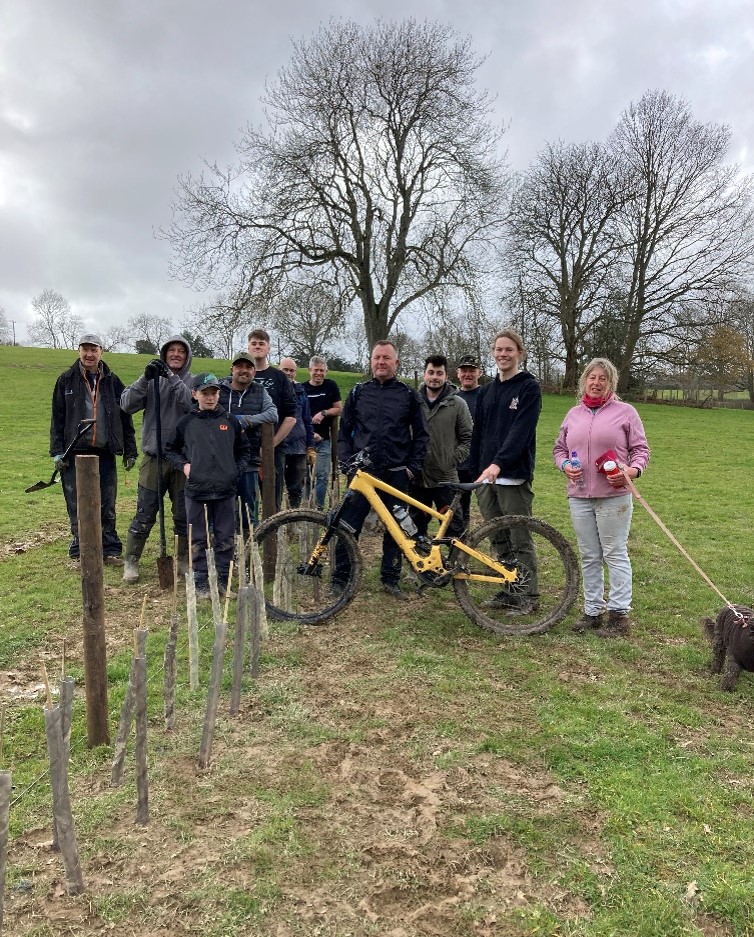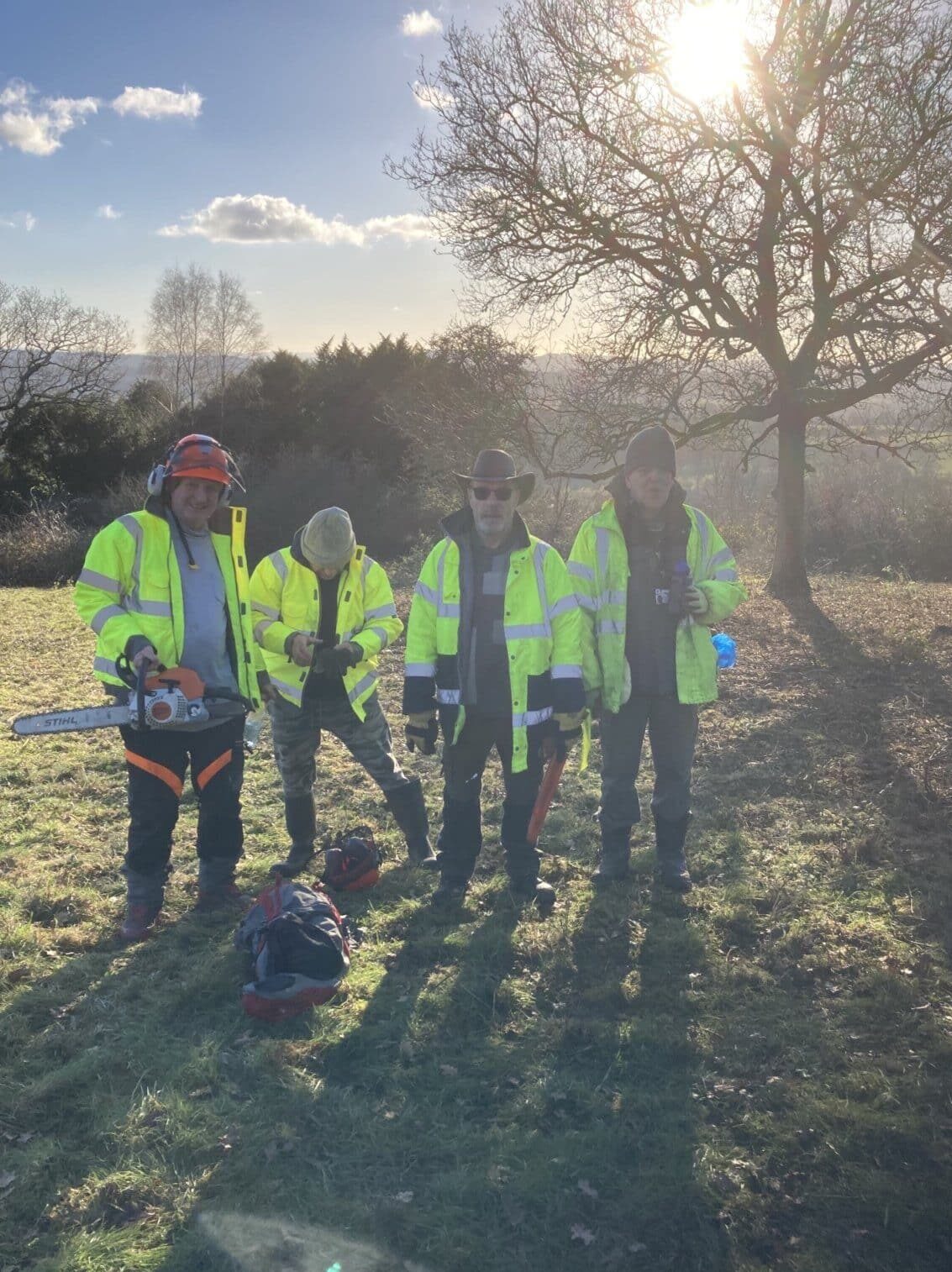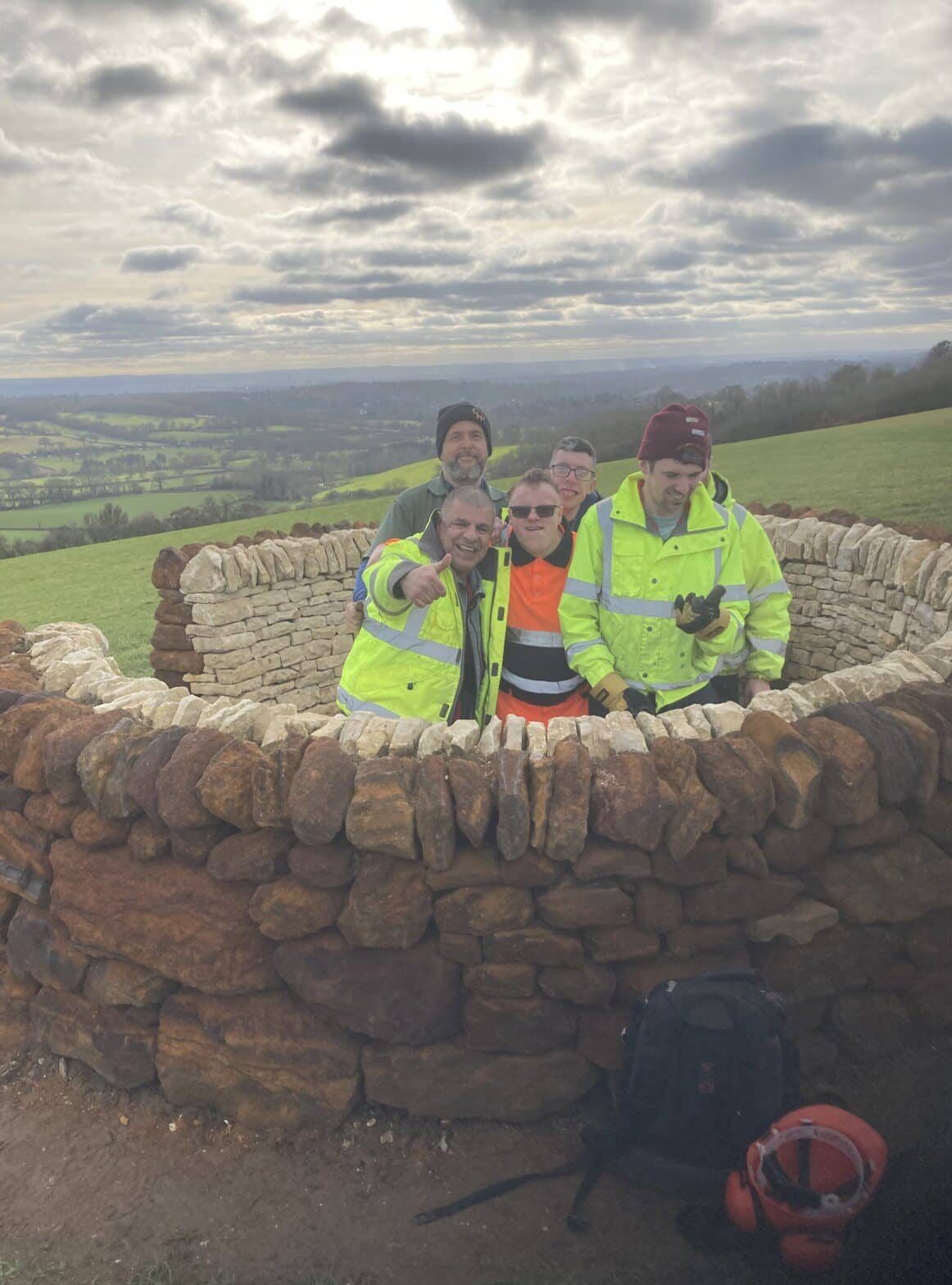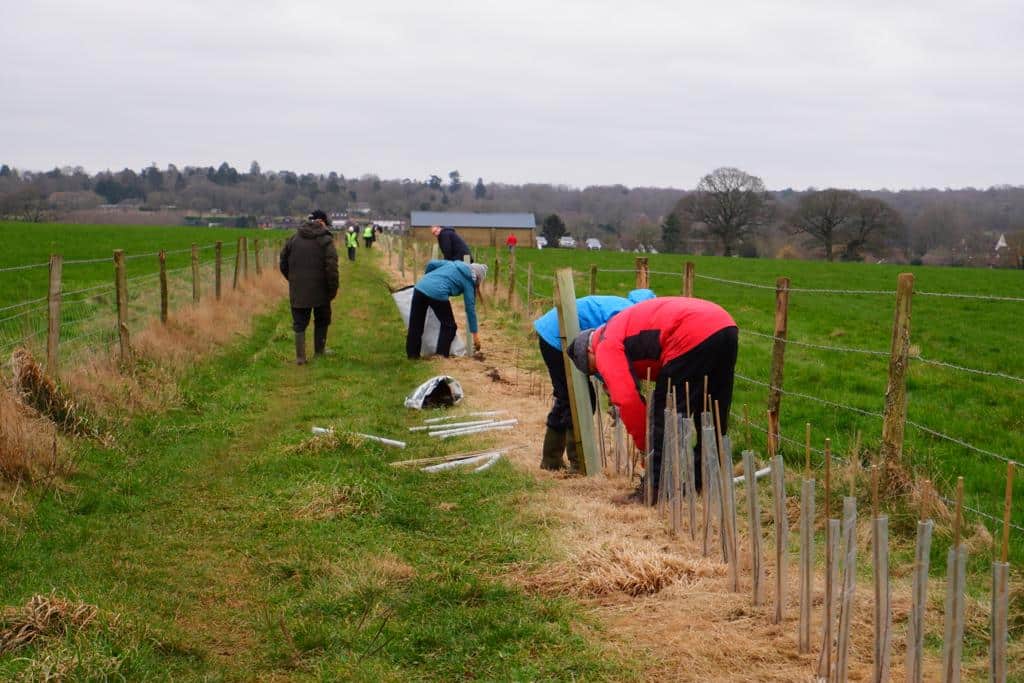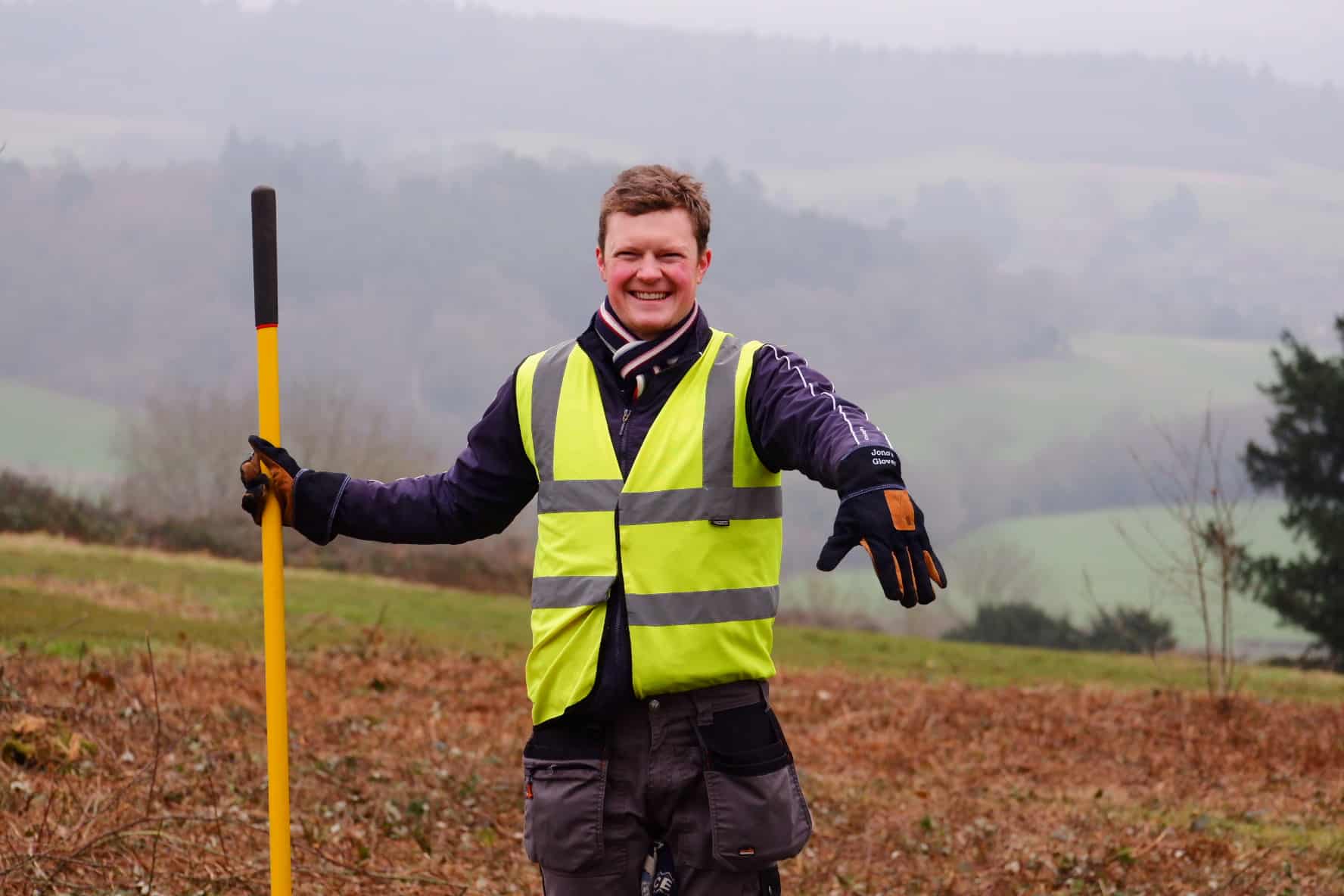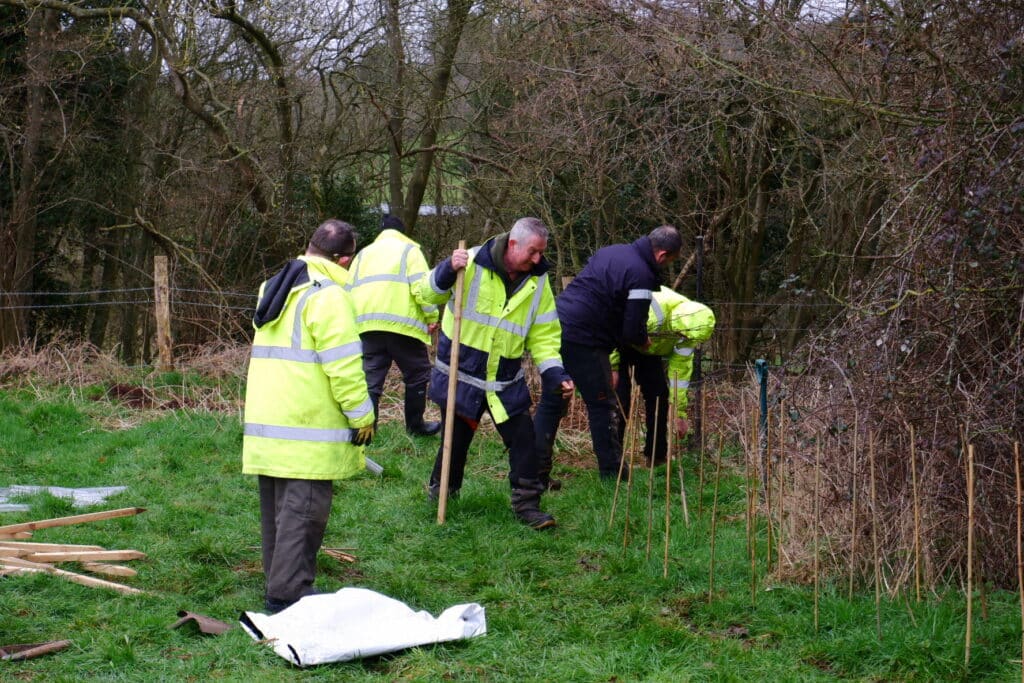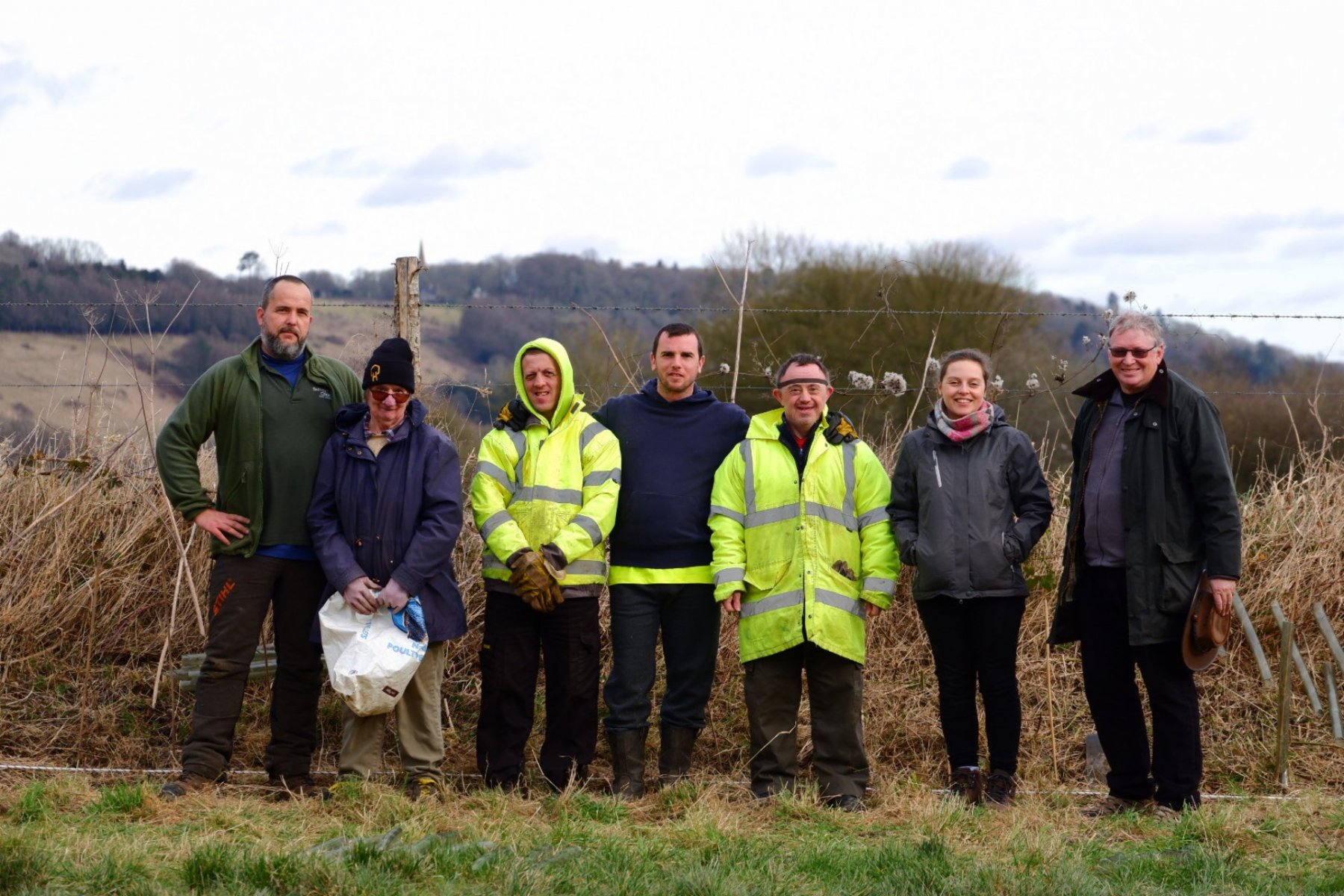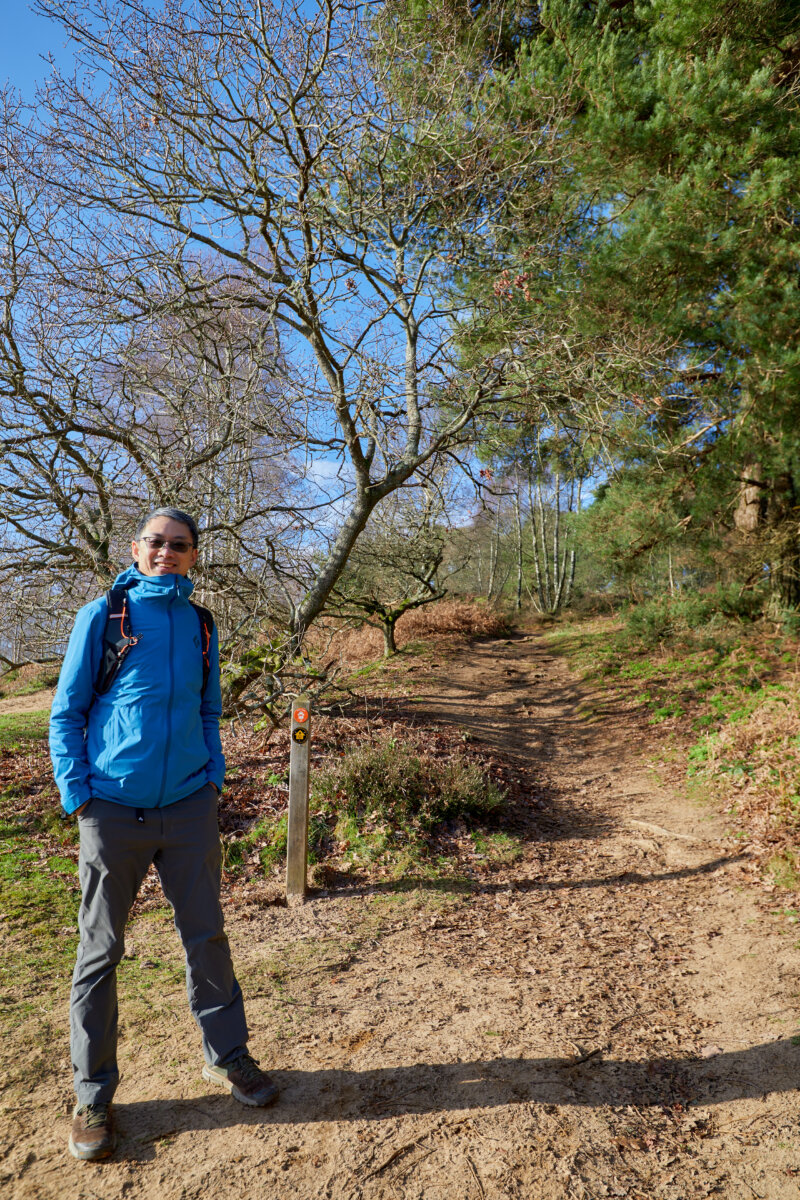Surrey Hills Conservation Volunteers
Scroll Down

Join a volunteering scheme to help make space for nature in the Surrey Hills.
The Surrey Hills National Landscape and Surrey Hills Society are working together to facilitate a Surrey Hills Conservation Volunteer scheme.
Surrey Hills Conservation Volunteers undertake conservation and access work across the Surrey Hills National Landscape, managing access and habitats for people and nature. This work is essential to achieve the Vision of the Surrey Hills and the aims of the Management Plan, in conserving and enhancing this protected landscape. Conservation Volunteers may undertake a range of projects, including improving access for all and enhancing habitats for biodiversity. They may require appropriate training depending on the project/activity and require some ongoing commitment.
If you are interested in finding out more about becoming a Surrey Hills Conservation Volunteer or attending one of our conservation volunteering events, then please contact the Surrey Hills Society below.
Examples of Surrey Hills Conservation Volunteer roles available include:
- Promoted Route Initial Auditors
- Route Champions
- Wildlife Survey Volunteers
- Assistant Conservation Team Leaders
- Conservation Volunteering Event Runners
As well as this, the Surrey Hills Society delivers a series of community conservation volunteering events throughout the year which falls under this scheme. These are one off events, that are open to all and require no ongoing commitment.
The Society also creates bespoke volunteering days for individual community groups and corporate volunteering days. These task days all contribute to the work of Surrey Hills Conservation Volunteers. Please see some examples of our previous Conservation Projects below.
Open to 18-24 year olds, My Green Future is a 12-week environmental volunteering programme, designed to equip participants with a variety of essential practical skills and experience.
My Green Future is a fun and informative 1-day a week programme where participants will find out what it’s like volunteering for Surrey Wildlife Trust, Surrey Hills Society, National Trust, and Surrey County Council.
How you can make space for nature
Whether you are interested in conservation volunteering, assisting with shows or leading walks joining the Surrey Hills Society has opportunities for all. We welcome you to be part of our wide community and help make space for nature.
Don’t be too tidy in the garden and let the wild flowers in your lawn bloom, providing a feast of nectar for our hungry pollinators. Longer grass also allows for a better shelter for creepy crawlies and provides habitats for amphibians and small mammals.
Join legions of gardeners and say “no” to the mow during May as part of the Plantlife Every Flower Counts campaign. It’s simple, lock the lawn mower away for a month let your lawn provide a feast of nectar and pollen for bees, butterflies and other insects.
It’s simple and fun to attract bugs to the garden. Find a quiet spot, and pile up rocks, bricks, logs, twigs and leaves. Then do not disturb. This will become home to all sorts of important insects such as beetles and spiders. The Woodland Trust have got some great ideas on how to attract and create the perfect home for all wildlife, from Bug hotels and Log pile lodges to Pine cone palaces for ladybirds!
Solitary bees are important pollinators and a gardener’s friend. For those wanting tips on how to build a bee hotel The Wildlife Trust have got great advice on just what our ‘Buzzy’ friends like!
Birds are an important part of your garden’s ecosystem, and creating bird boxes and putting out food will help them thrive. Putting out a variety of different bird feed is a great way to attract different birds to your garden and help out bird populations at the same time. With nearly 30% of birds in Great Britain being threatened with extinction and the likelihood of extreme weather events to increase due to climate change, providing extra food could really help local bird populations flourish. The RSPB have got some great ideas on what to feed birds, watch this short video from wildlife gardening guru, Adrian Thomas.
Bats are a sign of a green and healthy environment, so creating a garden that’s good for bats will also be good for people. These small and fascinating creatures often live in close proximity to us, using our gardens as an important source of food, water and shelter. As their natural habitats become more scarce, our gardens are playing a more important role in securing a future for bats. The Bat Conservation Trust have a step by step guide to building your own bat box to encourage these wonderful creatures to your garden.
